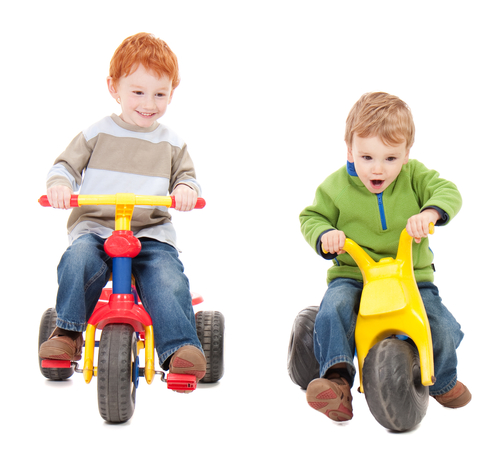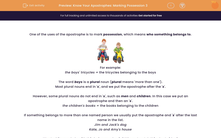One of the uses of the apostrophe is to mark possession, which means who something belongs to.

For example:
the boys' tricycles = the tricycles belonging to the boys
The word boys is a plural noun (plural means 'more than one').
Most plural nouns end in 's', and we put the apostrophe after the 's'.
However, some plural nouns do not end in 's', such as men and children. In this case, we put an apostrophe and then an 's'.
the children's books = the books belonging to the children

If something belongs to more than one named person we usually put the apostrophe and 's' after the last name in the list.
Jim and Jack's dog
Kate, Jo and Amy's house
Want a bit more help with this before you begin? Why not watch this short video?







